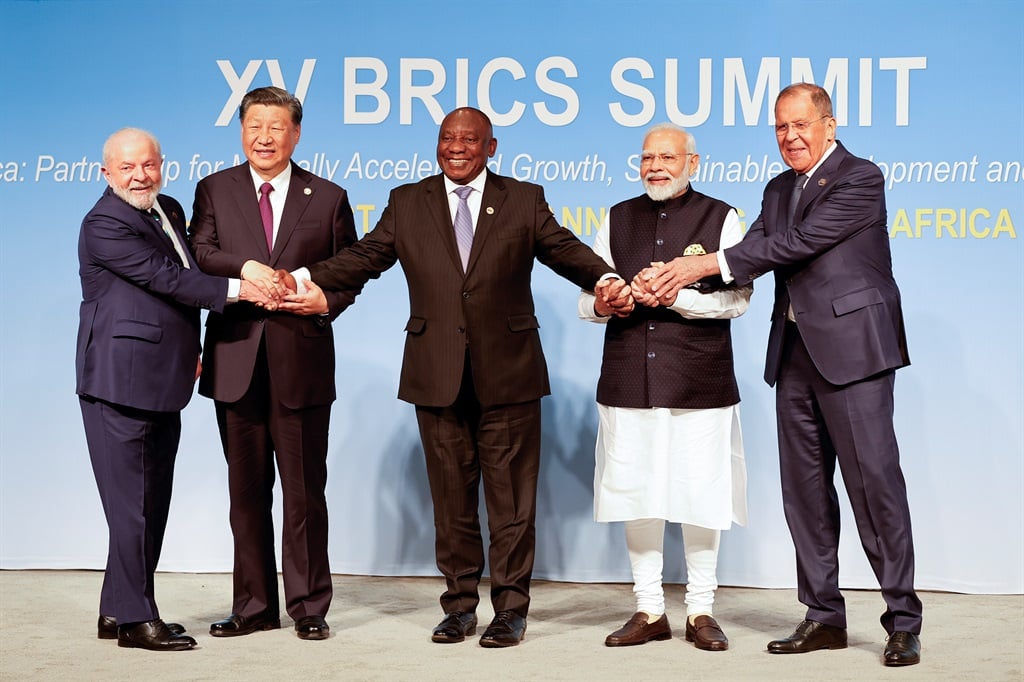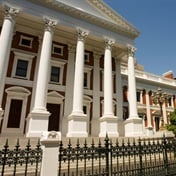
The BRICS+6, consisting of six of the world's top oil producers and four of the world's top natural gas producers, will play a key role in geopolitics surrounding energy, writes Jordan Mc Lean.
- For climate change news and analysis, go to News24 Climate Future.
Over the last month, we have seen three summits – the BRICS, G20 and inaugural Africa Climate Summit – converge on three key areas for development: climate finance, the just transition and global financial reform.
At the recent BRICS summit, the world watched as the BRICS group added six members, including three energy powers – Saudi Arabia, the United Arab Emirates (UAE) and Iran. How will this play into the BRICS agenda on climate and sustainability as the bloc attempts to position itself as a voice for the climate-vulnerable global South?
The BRICS+6 will comprise not only six of the world's top oil producers but also four of the world's top natural gas producers. The expanded group now straddles critical maritime energy chokepoints – the Persian Gulf and the Red Sea, with a foothold in the Mediterranean. But focusing on oil and gas only tells part of the BRICS energy story.
The expanded BRICS were collectively responsible for 51% of global greenhouse gas emissions in 2021.
But they are also important players in critical minerals value chains central to the energy transition.
Argentina has the world's third-largest reserves of lithium after Chile and Australia, while Brazil, Russia and China make up about a quarter of the world's nickel reserves. China holds 34%, India 5%, and Brazil and Russia 16% each of the global rare earth mineral reserves.
Do these characteristics augur a new energy superbloc? What would this mean for global decarbonisation pathways and the global climate change agenda?
READ | Ramaphosa's 'political mastery’ hailed as six countries join BRICS
The established BRICS energy and climate agenda
Climate change and energy are permanent fixtures in BRICS summit declarations.
At the 2012 BRICS summit in India, the members agreed to continue using fossil fuels to support their development efforts, while exploring the expansion of clean and renewable energies. Subsequent summit declarations broadly reiterated this position.
The BRICS approach emphasised the principle of common but differentiated responsibilities (CBDR) in addressing climate change – a principle supported by all developing countries and enshrined in the landmark Paris Agreement of 2015.
The Johannesburg II Declaration from last month's BRICS summit included a lengthy statement on partnership for sustainable development, maintaining a cautious BRICS climate agenda even as global temperatures reach new heights.
READ | ANALYSIS | G20 fails on fossil fuel phase out as 'dark cloud' looms
On energy, the BRICS group recognised the urgency of decarbonisation and a just energy transition but stopped short of committing to phasing out fossil fuels.
Instead, the declaration recommitted BRICS to using all energy sources (including fossil fuels) more efficiently, recognising "the role of fossil fuels in supporting energy security and energy transition".
Two weeks later, the G20 Summit reflected the same reticence. G20 member states agreed to triple global renewable energy capacity, but agreement on the phasing down (or out) of fossil fuels remained elusive.
Seven G20 states will have overlapping membership with the BRICS group after the bloc's expansion.
How might climate be handled in an expanded BRICS?
The expanded BRICS in climate negotiations
Four of the original BRICS states – Brazil, India, China, and South Africa – have pursued a more coordinated climate agenda as members of the BASIC group. Last year's ministerial statement accused the developed world of "double standards" because of their continued use of fossil fuels.
South Africa also negotiates in the Africa group (to which Egypt and Ethiopia belong), whose calls for a Loss and Damage Fund were heeded at COP27 last year.
Despite being the biggest polluter, China has refused to contribute to the fund but supported its creation as a member of the G77+China group.
Saudi Arabia and the UAE negotiate as the Arab group (as does Egypt), and along with Iran, are members of the Organisation of the Petroleum Exporting Countries (OPEC), which defended the oil and gas industry at COP26 in Glasgow, citing the possibility of a low emissions future partly powered by fossil fuels. While Russia is not a member, it often coordinates with OPEC.
With an expanded BRICS, we now have several countries with different energy mixes and sources, creating necessarily divergent climate and energy interests. However, opportunities do exist to incorporate the new BRICS countries' climate positions into the original BRICS group's climate and energy agenda.
READ | The UN can talk SDGs all it wants, without money it means little for Africa, experts warn
BRICS and climate change in a transforming global order
The BRICS+6 are unlikely to discard commitments to increase renewable energy capacity. They will affirm their developmental need to retain fossil fuels and emphasise reducing greenhouse gas emissions through technology like carbon capture and storage.
The Saudi G20 presidency saw the circular carbon economy endorsed by the G20 as an innovative approach to achieving the net-zero pledge while promoting green growth and development.
Where the trend in advanced economies has been to aim to remove hydrocarbons completely from the energy mix, the Saudis wanted to emphasise that reducing emissions was the goal to which a circular carbon economy could contribute.
Like other developing economies, the BRICS believe that advanced economies do not fully acknowledge the CBDR principles of the Paris Agreement. The Johannesburg Declaration reminded these economies of their commitment to mobilise $100 billion per year to support climate action and access to existing and emerging low-emission technologies.
Veiled reference was also made to the European Union's carbon border adjustment mechanism, noting the grouping's opposition to "trade barriers" under the pretext of tackling climate change.
Towards a new consensus
The principles set out in the declaration will likely be amplified by the BRICS' expansion rather than significantly altered. The consensus principle underlies BRICS cooperation. They cooperate where their interests converge, keeping issues where they diverge off the agenda.
The BRICS expansion bolsters its geographic representation, but gravity has shifted to oil and gas-producing states.
A coordinated BRICS+6 can play a key role in the geopolitics surrounding energy, likely to affect the United Nations Framework Convention on Climate Change's ambitious net zero goal by 2050.
As all members grapple with the energy transition, the call made in the Johannesburg Declaration for a just, affordable and sustainable transition to a low-carbon and low-emission economy in line with CBDR and the imperative of developed country support will only become more pronounced.
Jordan Mc Lean is a Climate Change Policy Researcher at the South African Institute of International Affairs.
News24 encourages freedom of speech and the expression of diverse views. The views of columnists published on News24 are therefore their own and do not necessarily represent the views of News24.




 Publications
Publications
 Partners
Partners












